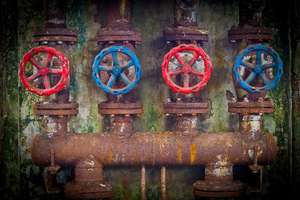
Building Real-time Data Pipelines: Challenges, Benefits, and Technologies
Real-time data pipelines play a crucial role in modern data engineering, enabling businesses to make data-driven decisions with minimal latency. In this blog post, we will discuss the challenges and benefits of building real-time data pipelines, provide an overview of the technologies and architectures used for real-time processing, and present examples of use cases and industries that can benefit from real-time data pipelines.
What are the Challenges of Building Real-time Data Pipelines
Latency
One of the main challenges of building real-time data pipelines is minimizing latency while ensuring data consistency and integrity. Real-time processing requires ingesting, processing, and delivering data with minimal delays, which can be challenging due to network latency, processing overhead, and data storage bottlenecks.
Scalability
Real-time data pipelines often need to handle massive volumes of data and fluctuating workloads. Ensuring the scalability of the pipeline to accommodate these variations without compromising performance is a significant challenge.
Data Quality and Consistency
Real-time data pipelines must process and validate data as it's ingested, which can introduce complexities related to data quality and consistency. Ensuring data accuracy, handling incomplete or duplicate data, and maintaining data consistency across distributed systems are all essential aspects of building reliable real-time data pipelines.
Fault Tolerance
Real-time data pipelines must be resilient to failures and capable of recovering quickly from errors. Implementing fault tolerance and automatic recovery mechanisms can be challenging, especially in distributed systems with multiple components and dependencies.
Benefits of Real-time Data Pipelines
Improved Decision-making
Real-time data pipelines allow businesses to make informed decisions based on up-to-date information, enabling quicker responses to market changes, customer behaviors, and operational inefficiencies.
Enhanced Customer Experience
Real-time data processing enables businesses to deliver personalized and context-aware customer experiences by providing timely insights into customer behavior and preferences.
Operational Efficiency
Real-time data pipelines can help organizations identify and resolve operational issues more quickly, resulting in increased efficiency and reduced costs.
Competitive Advantage
Implementing real-time data pipelines can provide a competitive advantage by enabling businesses to respond to market trends and customer needs faster than their competitors.
Technologies and Architectures for Real-time Data Pipelines
Apache Kafka
Apache Kafka is a distributed streaming platform designed for high-throughput, fault-tolerant, and scalable real-time data processing. It is often used as the backbone for real-time data pipelines, allowing producers and consumers to publish and subscribe to data streams with low latency.
Apache Flink
Apache Flink is a distributed data processing framework that enables real-time, event-driven processing at scale. Flink supports complex event processing, stateful stream processing, and windowed computations, making it suitable for a wide range of real-time data processing use cases.
Apache Storm
Apache Storm is a distributed stream processing framework designed for processing large volumes of data in real-time. Storm supports complex event processing, stateful stream processing, and windowed computations, enabling the development of real-time data pipelines for various applications.
Apache Samza
Apache Samza is a distributed stream processing framework built on top of Apache Kafka. Samza provides a simple API for building stateful, fault-tolerant, and scalable real-time data processing applications.
Lambda Architecture
Lambda Architecture is a hybrid approach to data processing that combines both batch and real-time processing. In this architecture, real-time and batch processing pipelines run in parallel, with the real-time pipeline providing low-latency results and the batch pipeline ensuring data consistency and completeness.
Kappa Architecture
Kappa Architecture is a simplified version of Lambda Architecture that focuses solely on real-time data processing. In Kappa Architecture, all data is processed through a single real-time streaming pipeline, eliminating the need for a separate batch processing layer. This approach simplifies the system and reduces operational complexity while still providing low-latency results.
Use Cases and Industries That Benefit from Real-time Data Pipelines
Financial Services
Real-time data pipelines play a crucial role in the financial services industry, enabling applications such as fraud detection, risk assessment, algorithmic trading, and real-time portfolio management.
E-commerce
In the e-commerce industry, real-time data pipelines can be used to provide personalized product recommendations, analyze customer behavior, detect fraudulent transactions, and optimize pricing strategies based on market trends.
Healthcare
Real-time data pipelines can help healthcare organizations monitor patient health, detect anomalies, predict disease outbreaks, and optimize resource allocation for improved patient care.
Transportation and Logistics
Real-time data pipelines can help transportation and logistics companies optimize route planning, monitor vehicle performance, track assets, and predict maintenance needs, leading to increased efficiency and reduced costs.
Telecommunications
Telecommunications providers can leverage real-time data pipelines to monitor network performance, detect issues, and optimize resource allocation for improved service quality and customer satisfaction.
Smart Cities
Smart city applications, such as traffic management, waste management, and energy optimization, can benefit from real-time data pipelines to analyze sensor data, predict resource needs, and optimize operations.
Im summary, building real-time data pipelines presents several challenges, including minimizing latency, ensuring scalability, maintaining data quality and consistency, and providing fault tolerance. However, the benefits of real-time data processing, such as improved decision-making, enhanced customer experience, and operational efficiency, make these challenges worth tackling.
By leveraging technologies and architectures like Apache Kafka, Apache Flink, Apache Storm, Apache Samza, Lambda Architecture, and Kappa Architecture, data engineers can build robust, scalable, and efficient real-time data pipelines. Real-time data pipelines have the potential to transform industries and applications, from financial services to smart cities, by delivering timely insights and enabling data-driven decision-making.




